The EQ-i model of Emotional Intelligence presents 15 well researched and tightly defined components that make up the behavioral face we each show. What we look and sound like to the world around us–that is our EQ. While each of these EQ elements is important and has a particular role to play in our effectiveness, certain combinations of elements become particularly compelling and relevant when dealing with any given problem or meeting a particular challenge.
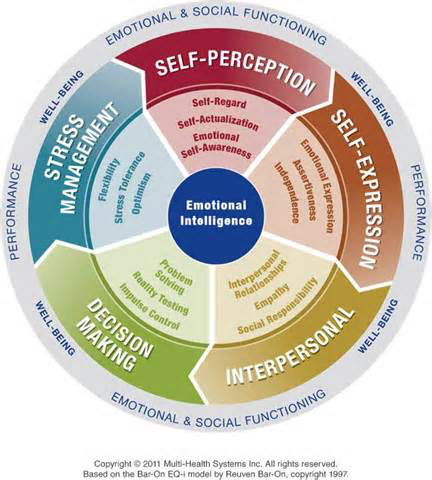
For instance, let’s consider the problem of too little data gathering: rigidity, inflexibility, intransigence—an inability or unwillingness to learn, grow or change. This issue is a major stumbling block of people, organizations, and even nations, and it is all rooted in gathering too little new data.
Emotional Intelligence and success as a human rely on a steady and changing stream of data from our world to feed our ever-shifting and hopefully growing ideas of what the world demands and what we will each do in response.
A powerful use of the EQ-i is as a highlighter of data gathering—in a person and in groups. Four of the EQ-i’s 15 elements are specifically focused on collecting new data–to keep us open, changing, and learning–Emotional Self-Awareness, Empathy, Reality Testing, and Flexibility. Emphasizing the special contribution of each of these four EQ elements—as well as the linkage between them—is an important, higher-level insight that the EQ-i can provide.
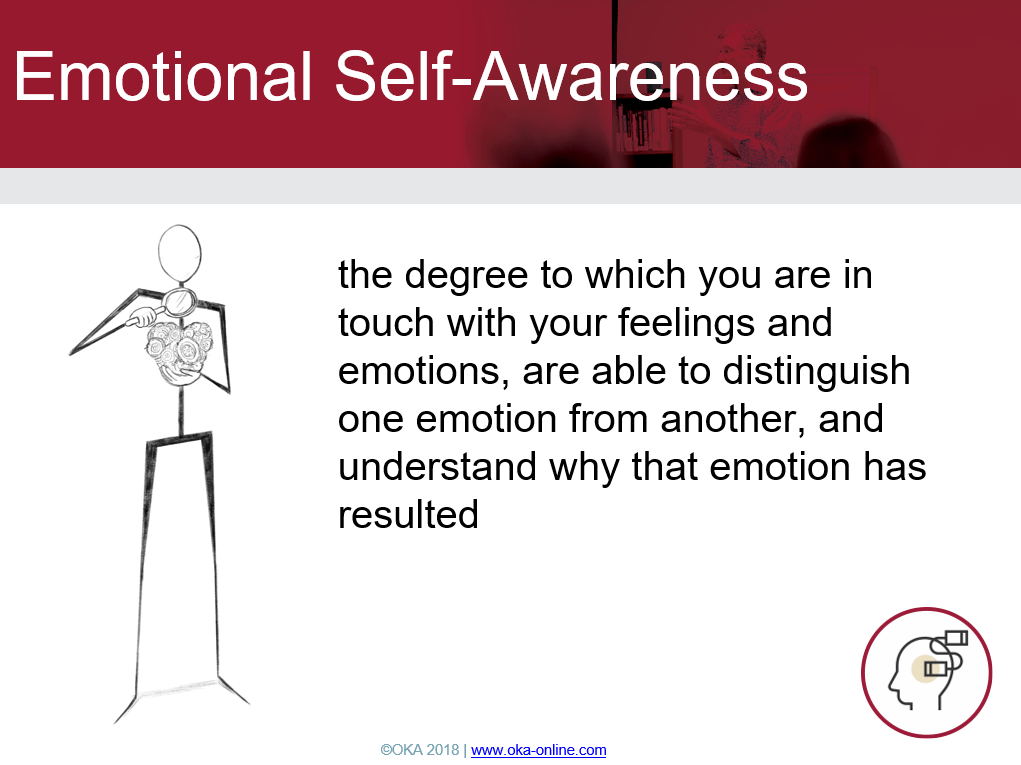
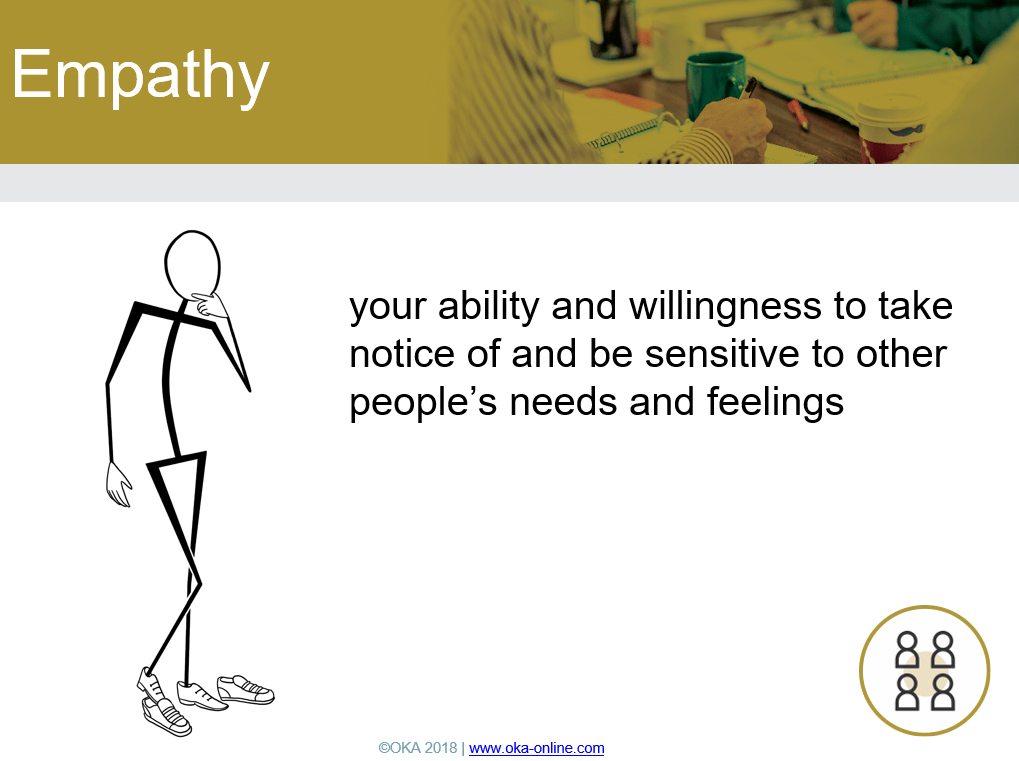
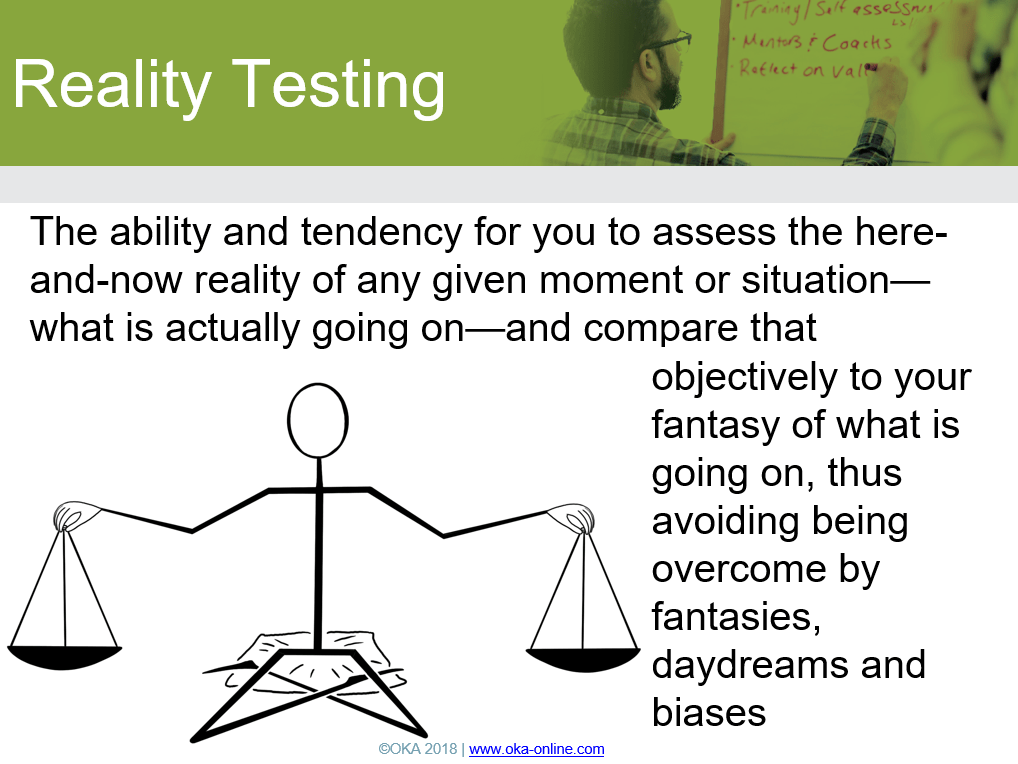
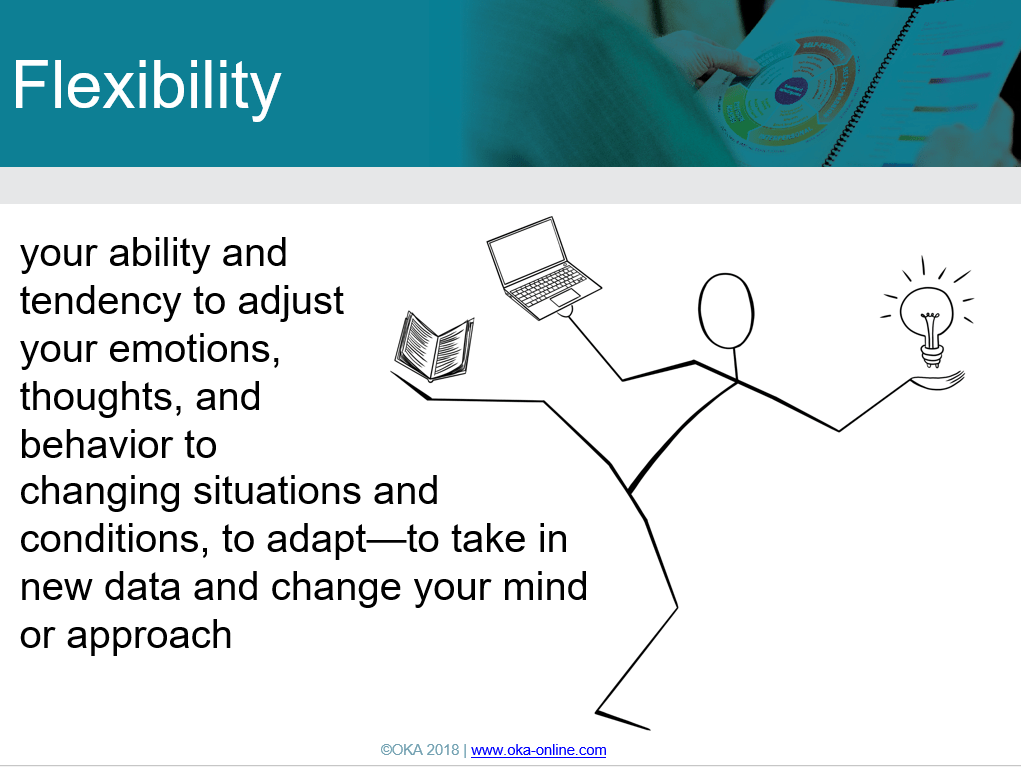
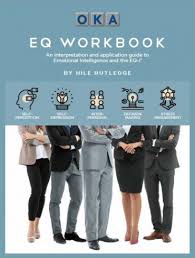
OKA’s EQ Workbook is an attractive and interactive resource for anyone engaging the EQ-i and/or Emotional Intelligence who wants to take a deep dive and pivot from insight to action. Click here for more information on OKA’s EQ Workbook.


Leave a Comment